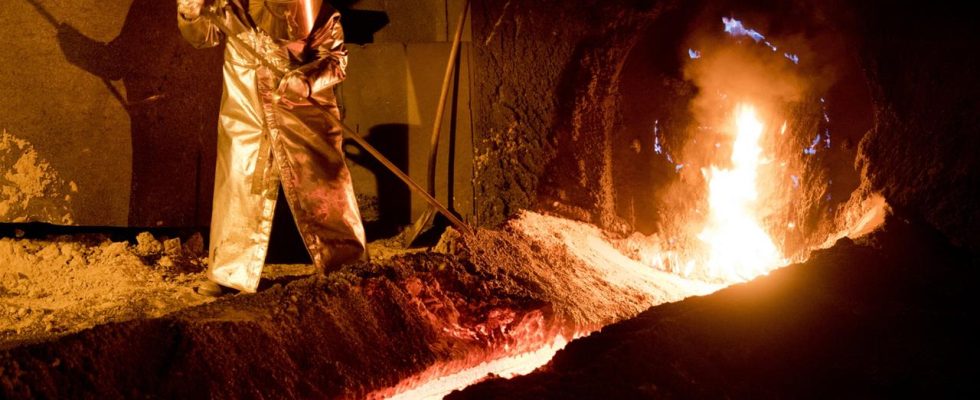Collective bargaining for the north-west German iron and steel industry is scheduled for mid-November. Now the IG Metall has set its demands: They are pushing for a four-day week and a wage increase of 8.5 percent.
With a view to the collective bargaining for employees in the north-west German iron and steel industry, which is due this year, the IG Metall trade union has presented its demands. In addition to a wage increase, the key points are also the reduction in weekly working hours.
IG Metall wants to reduce weekly working hours from 35 to 32 hours a week, with full wage compensation. The wage commission in Duisburg agreed on this. Furthermore, the employees are to receive a wage increase of 8.5 percent.
The district head of IG Metall in North Rhine-Westphalia and chief negotiator, Knut Giesler, sees the reduction in working hours as an opportunity for other sectors if it is enforced: “This reduction in working hours would be the start of the 4-day week, which in many areas becomes possible.” In addition, a reduction in weekly working hours represents a win-win situation for employees and employers alike, Giesler emphasized. Because such a shortening has a stress-reducing effect, which is likely to result in fewer cases of illness and higher productivity among employees.
employers association rejects the request
However, the employer side immediately rejected the collective bargaining commission’s proposal. Precisely due to the switch to steel production that is as climate-neutral as possible and the already prevailing “serious shortage of skilled workers”, a “general reduction in working hours to 32 hours” threatens to deprive companies of “urgently needed additional manpower”.
The Steel Employers’ Association also criticized that a reduction in working hours to the required extent with full wage compensation would mean an increase in hourly wages of 8.6 percent. If the 8.5 percent required by IG Metall were then added, the total volume would be 17.1 percent. However, this would overwhelm the performance of the German steel industry and threaten the very existence of the industry.
Collective bargaining for the approximately 68,000 employees in the iron and steel industry is scheduled to begin in mid-November. The peace obligation, which excludes warning strikes, ends at the end of November.

